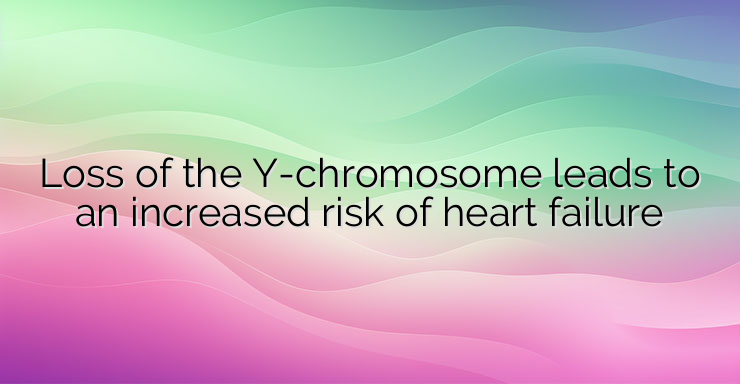The loss of the Y-chromosome in the male body leads to an increased risk of heart failure. Scientists from the University of Virginia, USA, found that the absence of the chromosome leads to damage to the Uty gene, which controls the function of immune cells. They observed changes in macrophages and a tendency to form scars, increasing the risk of heart failure. The effect caused by Uty damage can be cured � a paper in the journal Nature Cardiovascular Research shows that treatment with a special monoclonal antibody works to prevent the effect on macrophages. It works to recover from fibrosis. The link between the loss of the Y-chromosome and an increased risk of heart failure was established in 2022 by the same research team. In addition to being key to determining biological sex and spermatogenesis, the Y-chromosome is also linked to the immune system, say scientists from the University of Manchester, England. In a publication in the European Journal of Human Genetics, they hypothesize that chromosome activity acts to determine the immune response to HIV, with links to autoimmune diseases. Loss of the Y-chromosome increases the risk of cancer. A study published in the journal Nature shows that the absence of the chromosome helps cancer cells evade the immune system and grow uncontrollably. 40% of adult men with bladder cancer have been found to have a Y-chromosome deficiency. On the other hand, it is also found that cancer cells become more sensitive to immunotherapy. The brain is also affected by the loss of the Y-chromosome. The risk of neurodegenerative diseases such as Alzheimer’s disease increases. The main microglial cells in the brain are affected, according to scientists from the University of Washington in the US. Advanced age in men leads to an increased risk of problems with the reproductive system and the prostate gland. Prostate problems range from prostatitis to cancer. Erectile dysfunction is also possible, the risk of which increases with age, and according to a study by scientists in Massachusetts, USA, 70% of men over the age of 70 suffer from erectile problems. Other risk factors for such conditions include smoking, unhealthy diet and lack of physical activity. Stress also affects health, even more so in old age – scientists from Harvard University claim that aging leads to a lower ability to cope with stressful situations. References: University of Virginia Health System. New advance against a form of heart failure prevalent in men. https://www.sciencedaily.com/releases/2024/04/240401142505.htm Walsch, K. Disruption of the Uty epigenetic regulator locus in hematopoietic cells phenocopies the profibrotic attributes of Y chromosome loss in heart failure. https://www.nature.com/articles/s44161-024-00441-z Maan, A. The Y chromosome: a blueprint for men’s health? https://www.nature.com/articles/ejhg2017128#Sec6 NIH. Y chromosome affects cancer growth. https://www.nih.gov/news-events/nih-research-matters/y-chromosome-affects-cancer-growth NIH. Loss of Y Chromosome in Men Makes Bladder Cancer More Aggressive. https://www.cancer.gov/news-events/cancer-currents-blog/2023/bladder-cancer-y-chromosome-men Vermeulen, M. Mosaic loss of Chromosome Y in aged human microglia. https://genome.cshlp.org/content/32/10/1795.long Harvard Medical School. Does stress management become more difficult as you age? https://www.health.harvard.edu/newsletter_article/does-stress-management-become-more-difficult-as-you-age


Leave a Reply